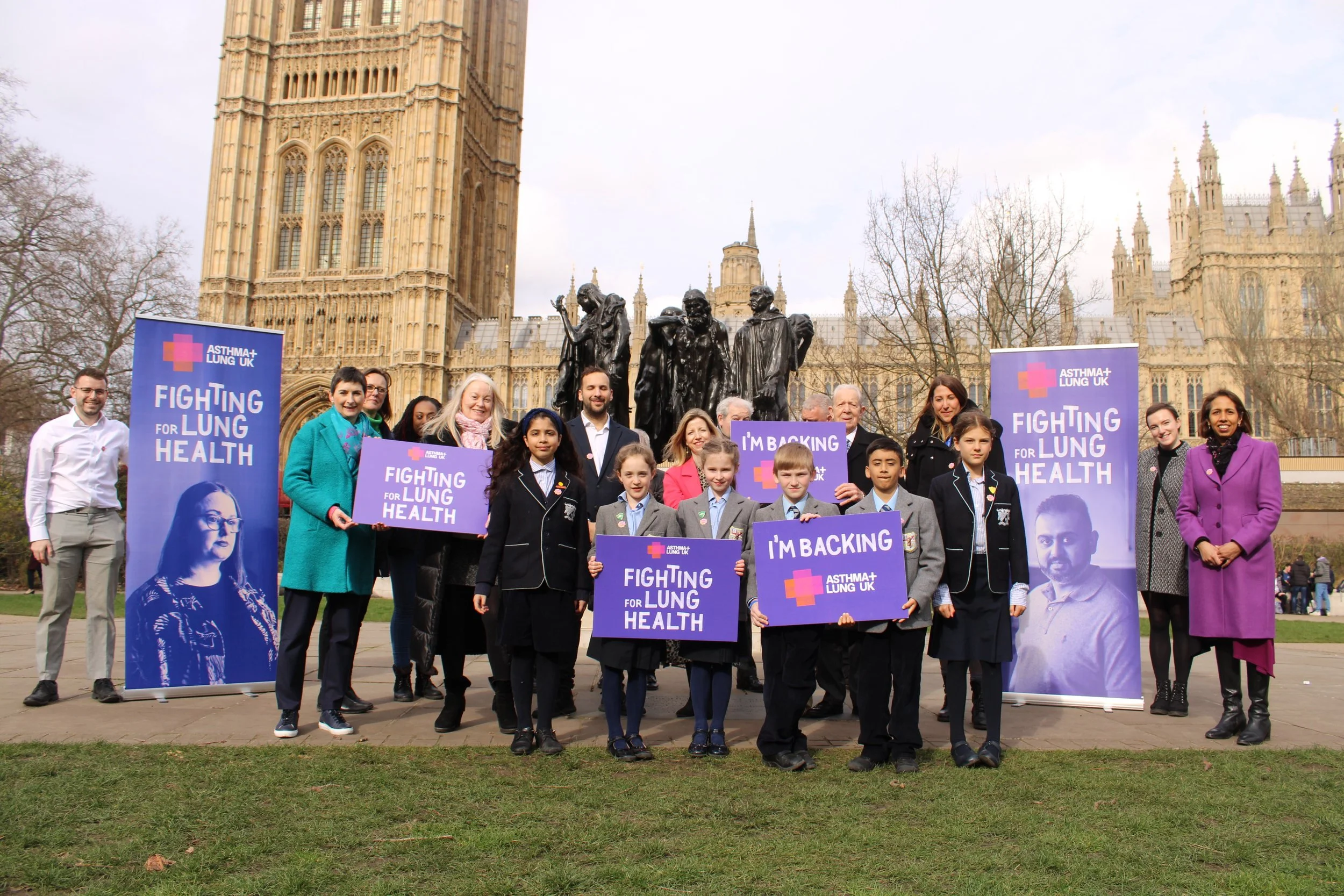How you can help save the NHS by taking part in their consultation
The government and the NHS are working together to save the NHS. They have launched a consultation to find out what people think about the NHS and what needs to change. Read on to find out how you can take part and why it’s so important for the future of the NHS.
Why you should take part in the consultation
The government and the NHS are working together to listen closely to what people think about the NHS, and what needs to change. The new government has identified three essential shifts that need to take place to save the NHS:
sickness to prevention
hospital to community care
and analogue to digital.
They’ve launched a survey so you can tell them your views, experiences and ideas about how the NHS can care for you and your lung condition better.
It is really important that you share your experiences and ideas.
Getting respiratory care right will help the government achieve these three goals, and people with lung conditions will finally receive the care they need and deserve. It’s a crucial moment to help shape the next decade of respiratory care in the NHS.
Taking part in this consultation is the most important thing you can do to tell the government not to leave lung health behind.
How you can take part in the consultation
The survey is available at change.nhs.uk/en-GB/projects/start-here.
This is your chance to share any thoughts and ideas you have with the government on how you think people with lung conditions should be cared for by the NHS. To help you, we’ve set out how you can take part. We’ve also provided some example answers below which you can copy and paste into your survey response.
Click on the “Get Started” button to enter into the survey.
You will be asked to sign up, so that you can hear updates about the consultation as it progresses.
The first question is about what you think the best things about the NHS are.
Question 2 asks what you think the top three biggest challenges facing the NHS are.
Questions 3 and 4 are about challenges you have personally faced.
What the government’s three essential goals mean and how you can respond
Questions 5 and 6 are about Shift 1: moving more care from hospitals to communities. The NHS want to deliver more tests, scans, treatments and therapies nearer to where people live. This will help people lead healthier and more independent lives and allow hospitals to focus on the most serious illnesses and emergencies.
For question 5, “In what ways, if any, do you think that delivering more care in the community could improve health and care?”, you could say:
Delivering more care in the community is essential for people living with a lung condition.
This can be achieved by delivering good year-round basic care in the community, including annual reviews, vaccinations, and pulmonary rehabilitation, to all those with lung conditions. This will enhance quality of life, reduce unscheduled hospitalisations, improve healthy life expectancy, and alleviate winter pressures on the NHS. Work by Asthma + Lung UK and PwC shows that this is also a cost effective way of caring for people with lung conditions, saving millions of pounds every year as a result of patients gaining control over their condition.
The NHS should also prioritise the diagnosis of respiratory patients by providing a spirometry recovery fund of £40 million over the next two years, with more funding prioritised for those local health services experiencing higher levels of deprivation. This will ensure this essential respiratory diagnostic test is available in the community for all those that need it.
Questions 7 and 8 are about Shift 2: making better use of technology. The NHS want to improve how we use technology across health and care to make care more accessible, more efficient, and more effective.
For question 7, “In what ways, if any, do you think that technology could be used to improve health and care?”, you could say:
Technology should be used to more effectively care for people with lung conditions.
More research is needed to enable life-saving breakthroughs in how we diagnose and treat lung conditions, so the government needs to commit funding for respiratory research.
Data collection for respiratory patients needs to be improved. Primary and secondary care data needs to be brought together to make high quality, publicly available datasets which will help ICSs target care where it is needed and ensure accountability.
The NHS needs to support ICSs to deliver proactive care facilitated by the roll out of digital tools, to keep patients well within the community and out of hospital, especially over winter. These tools can enable risk stratifying patients to find and care for those most at risk of exacerbation and help patients to manage their condition themselves. Artificial intelligence (AI) has the potential to play a key role in speeding up the diagnosis of respiratory diseases and freeing up capacity of healthcare professionals. For example, AI can support the interpretation of spirometry results.
Questions 9 and 10 are about Shift 3: focussing on preventing sickness, not just treating it. Spotting illness earlier and tackling the causes of ill health can help people stay healthy and take pressure off the NHS.
For question 9, “In what ways, if any, could an increased focus on prevention help people stay healthy and independent for longer?”, you could say:
Preventing lung conditions is vital. There are three key actions the government can do to achieve this:
Tackle the toxic air pollution that kills 43,000 people every year, by establishing strong clean air targets in line with the World Health Organization to protect those most at risk.
Prevent lung conditions by introducing a levy on tobacco companies to pay for a Smokefree Fund, ring-fenced for smoking cessation services, alongside the measures in the Tobacco and Vapes Bill to create a ‘smokefree generation’.
Develop a cross-departmental national strategy to fix cold and mouldy homes that are killing people.
By addressing these environmental drivers of poor lung health, the government could close the gap in mortality and morbidity between the richest and poorest in society, reduce the burden of lung conditions on the NHS, and save the economy billions of pounds.
This is a critical moment for the future of the NHS
This is your opportunity to tell the government all about your experiences and thoughts as someone living with a lung condition. Sharing your voice as part of this consultation is one of the most effective things you can do to help shape the future of respiratory care in the NHS.
This is a crucial moment that will help shape the next decade of the NHS. Take the survey and tell the government not to leave lung health behind.
We empower people with lung conditions to make changes that can be transformative.
Please donate now to help make sure people with lung conditions can live well this year.








Our amazing supporter, Gerard, sadly lost his wife Margaret to bronchiectasis in October 2023. This year he took on a special challenge to remember her and raise awareness of this condition. Here he tells us all about the challenge and what it meant to him.